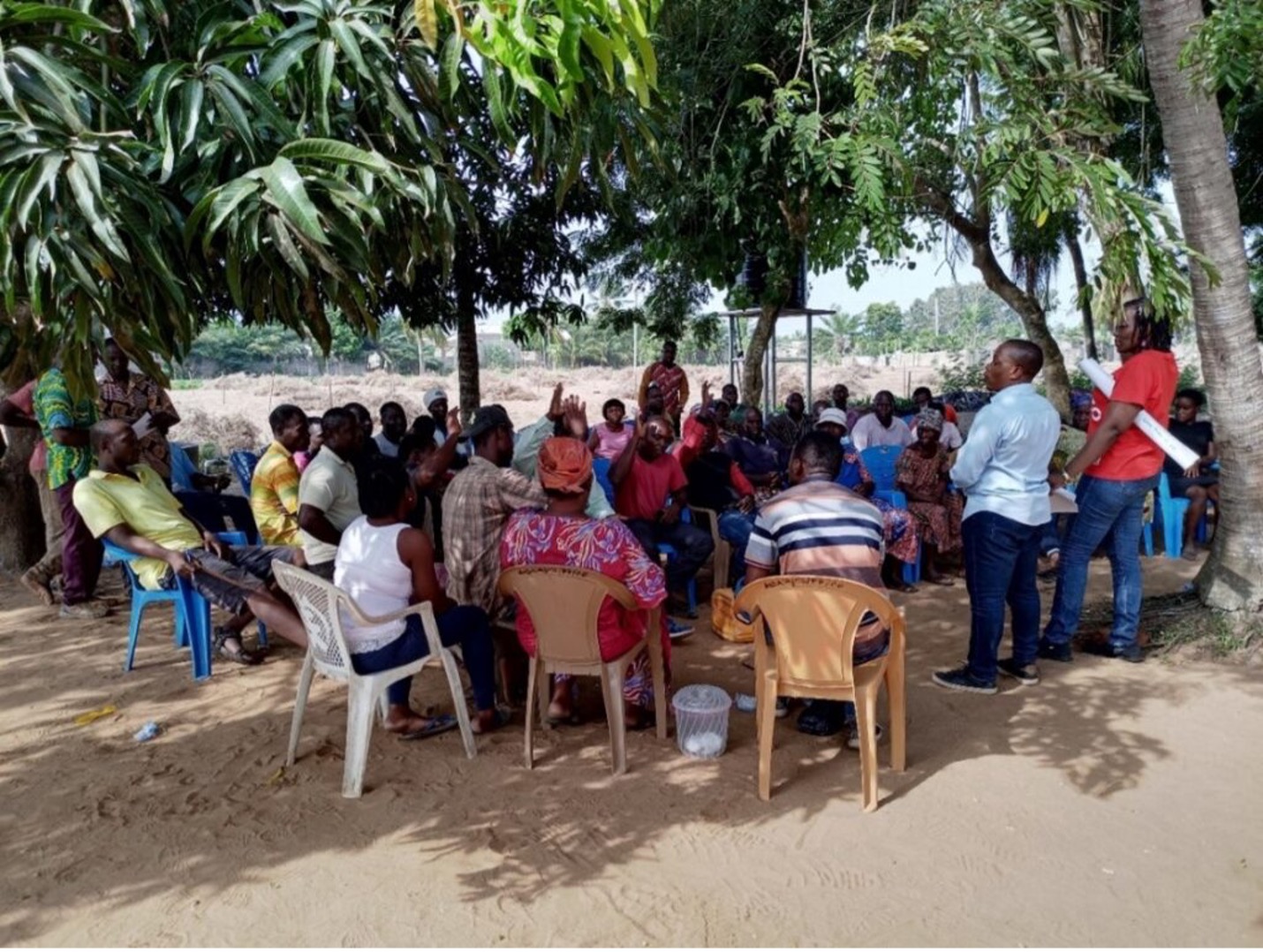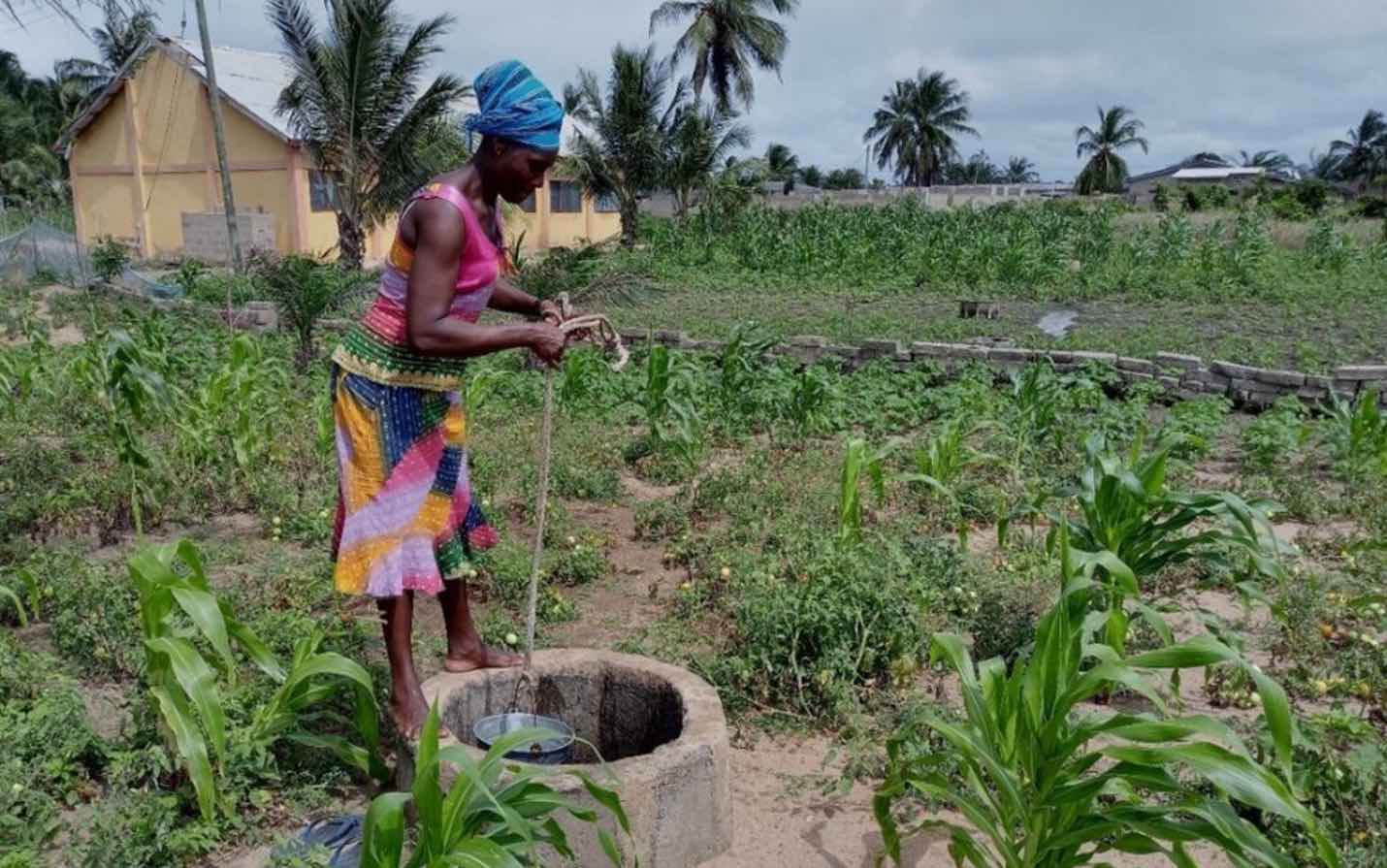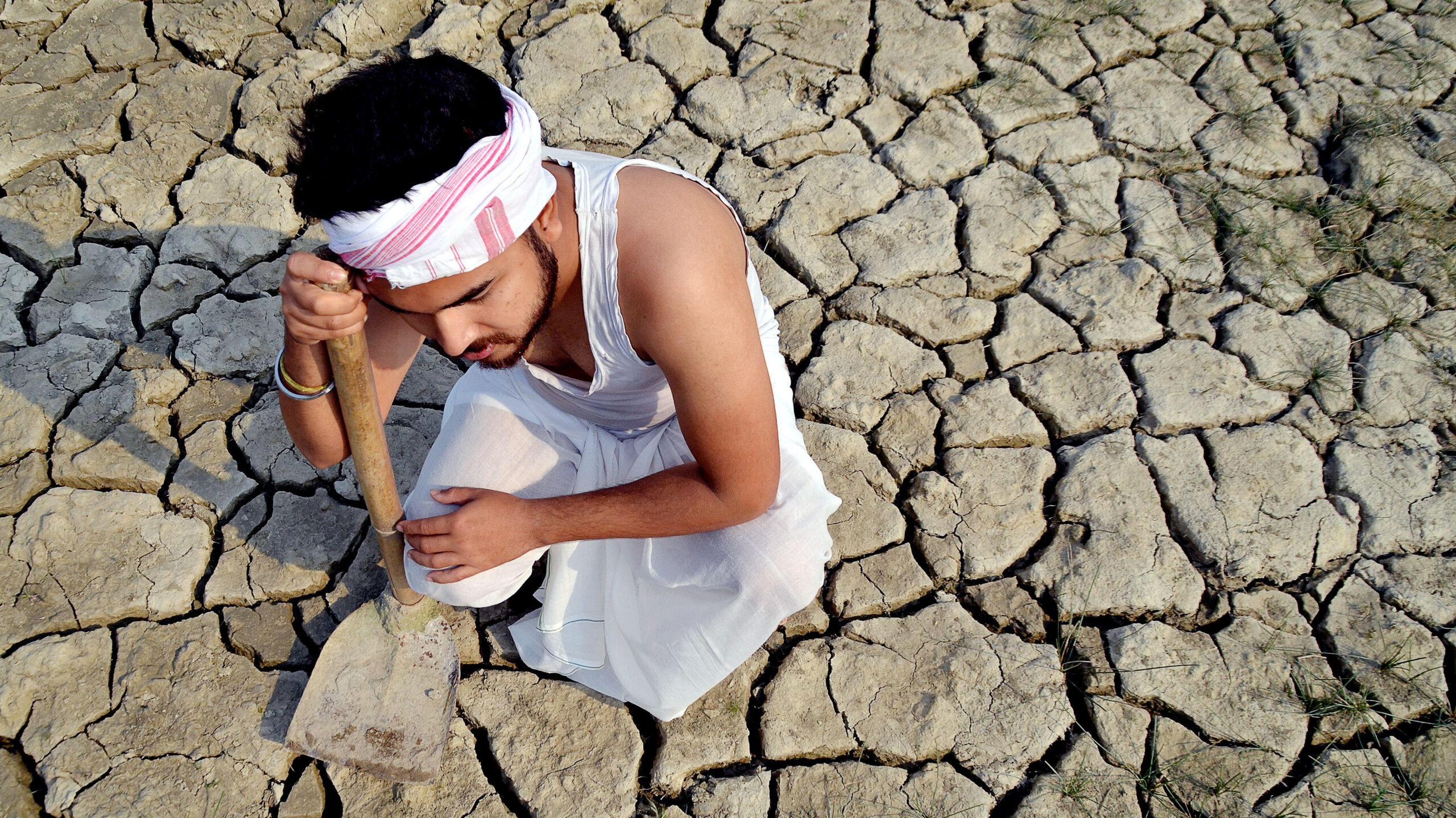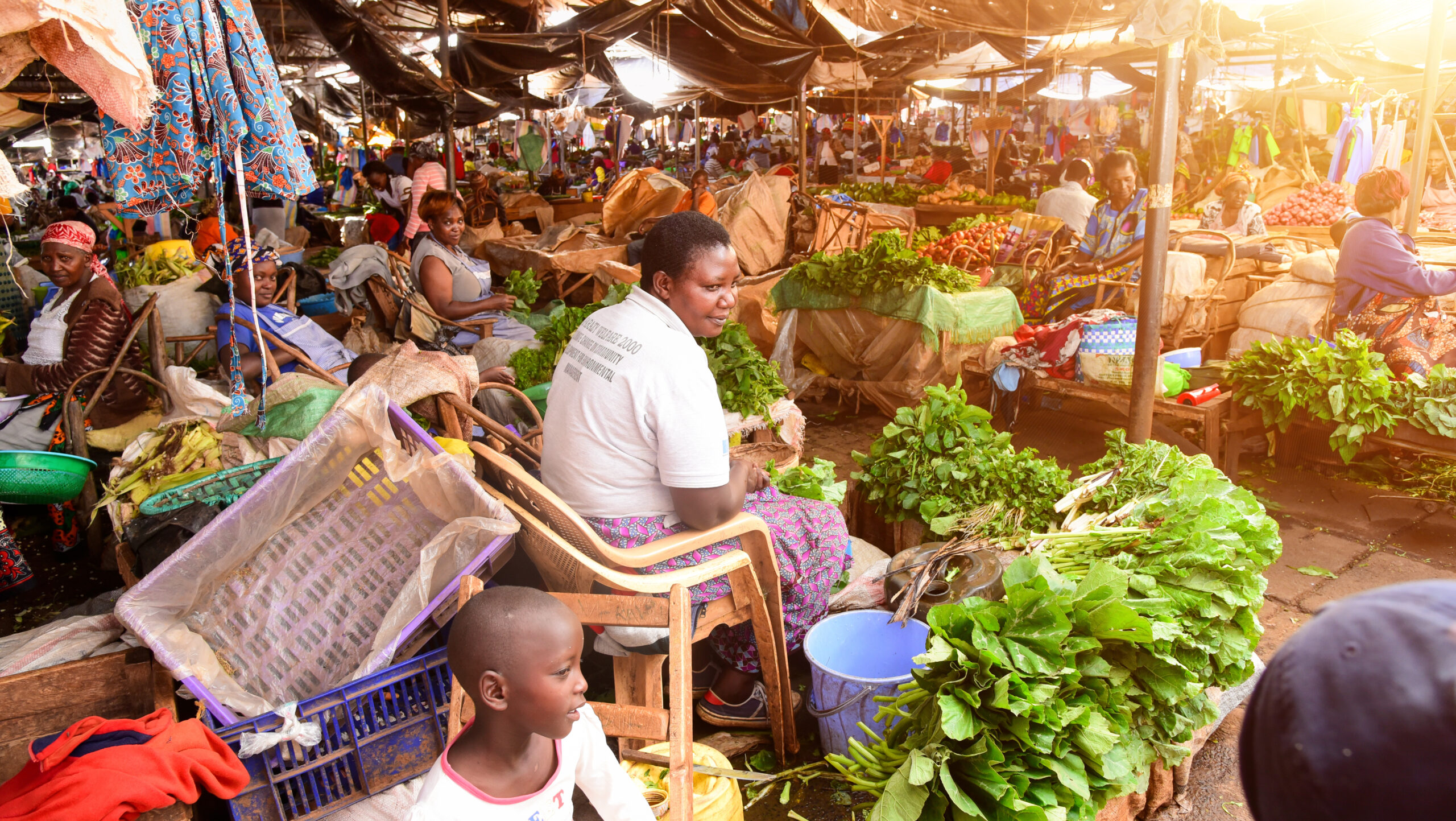Thousands of farmers living in the Keta and Anloga districts of Ghana (Figure 1) depend on groundwater from the Keta strip for producing vegetables and other food crops for consumption and income generation. The Keta strip lies between a salty lagoon (the Keta lagoon) and the sea (the Gulf of Guinea), along Ghana’s eastern coast. The two districts fall within the dry equatorial climatic region, the driest part of the country. The main occupations are farming, fishing and trading. Year-round farming uses groundwater from shallow unconfined aquifers within depths of about 15 meters. Crops grown include carrots, tomatoes, pepper, okra, onion, lettuce, potatoes, maize, and cassava. Farming in the Keta and Anloga districts is impossible without irrigation because of relatively low rainfall (about 800 mm), a long dry season of about six months, long dry spells within the rainfall season, high annual evaporation (about 1800 mm) and sandy soils.
Figure 1
Source: Figure 3 in Duku et al. (2022).
Farmers in the two districts abstract groundwater through large diameter open concrete-lined wells and small diameter (2-4 inches) piped tube wells, to irrigate farm sizes between 0.05 and 1 hectares. The groundwater is recharged mainly from rainfall. The recharge rate is relatively high (estimated at about 20% of the annual rainfall).
Some of the key challenges that irrigators are dealing with are declining groundwater tables and insufficient freshwater during the peak of the dry season (February-March) due to low groundwater tables and high evaporation, and saltwater intrusion; all of these affect crop productivity. Most farmers cope by reducing the volume of water used for irrigation, but others develop multiple wells for abstracting more water and relocate wells with salty water to locations with freshwater.
There are no functioning institutions that support farmer collaboration on water resources; instead, farmers operate as individuals. The lack of cooperative efforts threatens the sustainability of groundwater irrigation in the Keta and Anloga districts. One promising approach to address these challenges is the use of behavioral games that simulate real-life resource use. Such games allow participants to make decisions on crops and irrigation and see their impacts. They can try different management approaches and, overall, see how their decisions, levels of cooperation, and patterns of thinking affect groundwater resources.
In December 2022, we oversaw an intervention in the form of an experimental groundwater game, followed by community discussions of lessons learned from the game in 10 communities in the two districts, to improve awareness of the importance of resource governance, with the expectation of enhancing collective action toward more sustainable use and management of groundwater resources, and ultimately to sustain the livelihoods of farmers.
The activity was funded by USAID through the Feed the Future Innovation Laboratory for Small Scale Irrigation (ILSSI) project and was implemented by IFPRI, CSIR-Water Research Institute, the University for Development Studies, and the University of Ghana. In each of the communities, three sets of groundwater games were played by groups of men and women irrigators separately. Each group accessed water from a common source and cultivated crops of their choice, and farmers made individual decisions on farm size and number of plots cultivated. For simplicity, it was assumed that only the farm size cultivated had an effect on the volume of groundwater used.
In the first round of the game, farmers made decisions on farm size without discussing with other members of their group (no communication); in the second round, farmers discussed cultivation ideas with their group members but made individual decisions on cultivation. In the last round of the game, farmers communicated within their groups and elected to make rules to govern the farm size cultivated by each farmer and–by extension–the groundwater resources withdrawn, with sanctions for those farmers who did not comply with the rules (communication with group-elected rules). The game was followed with a debriefing session that included the larger community. The group discussion focused on the sharing of lessons from the groundwater game and farmers’ practical experiences on groundwater management.

Emmanuel Obuobie/CSIR
A community debriefing meeting at Woe, Anloga district, Ghana.
To evaluate the effects of the intervention on the communities’ understanding and management of groundwater resources, an endline survey was conducted in the 10 communities three months after the intervention and the data were compared to that of a baseline survey conducted prior to the game.
In the baseline survey, farmers indicated that there were no rules or arrangements for managing groundwater in their communities. Irrigators could cultivate as many plots as they wanted and have as many groundwater wells as they could afford, with little or no consideration for the long-term sustainability of the groundwater and their livelihoods. Generally, communities held the belief that groundwater could not be permanently depleted and therefore were strongly opposed to making rules to regulate when and how much to abstract.
Preliminary results from the endline survey show limited actions in response to the intervention at the community level, such as the establishment of institutions or rules on how much groundwater to abstract and when. However, there was an observed improvement in the attendance of community meetings for discussing community development issues including on water, health and hygiene; and improvement in participation in communal labor for cleaning communal facilities and places such as markets, beaches and drains. In addition, communities recalled learning through the game about the depletable nature of groundwater and the need to manage groundwater use. Farmers consulted understood the importance of adopting practices to help manage water use. Community beliefs shifted away from rejection of rules to govern groundwater use (at baseline) to understanding the need for collective action to manage the shared resource, though some communities still maintained that rules would be difficult to establish and enforce.
Comparatively, several changes could be observed at the individual level. Actions reported by individual farmers included a reduction in plot size or number of farm plots cultivated, a reduction in number of wells on individual farms; a reduction in cropping intensity, and a reduction in the number of hours irrigated for every round of irrigation.
It might well take several more months or even years to see the full impact of the groundwater intervention. This is not surprising given how long it takes to change long-held understandings and beliefs of how groundwater systems operate. One thing is clear however: We cannot ensure sustainable groundwater-supported livelihoods without changing mental models and the way we develop and manage groundwater in this part of Ghana or anywhere else in the world.
Emmanuel Obuobie is Senior Research Scientist, Water Research Institute, Council for Scientific and Industrial Research (CSIR), Ghana; Claudia Ringler is Director of IFPRI’s Natural Resources and Resilience (NRR) Unit, an ILSSI collaborator and co-lead of the CGIAR NEXUS Gains Initiative; Hagar ElDidi is an NRR Senior Research Analyst; Wei Zhang is an NRR Senior Research Fellow. This post is based on research that is not yet peer-reviewed.
This post first appeared on the Feed the Future Innovation Lab For Small Scale Irrigation (ILSSI) website.







